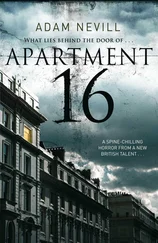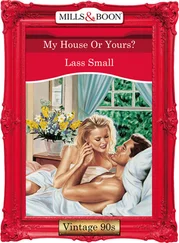And in the sudden stampede of white socks and grey shorts and blue cardigans and pleated skirts and school shoes, that followed the arrival of the boy, and in the terrible screams that forced Catherine to clamp her dirty hands against her ears, the raggedy boy with the lopsided black wig upon his round head vanished as the rout of hysterical children formed a din in the air filled with leaves and stinging grit.
The chaos stopped as soon as it started. Stopped when Catherine stood up. And when she was standing, she realized her pants were wet through and her bottom was going cold. The back of her thighs still burned from the lash of the skipping rope.
But of more interest was the flock of children in the distance that ran towards the lower playground, even though the ice-cream van had stopped playing its tune and even though the raggedy boy had gone. The children sounded like a flock of hungry seagulls, little screeching voices bouncing off brick and concrete. Perhaps he was amongst the fleeing children, pumping his thin legs in the woollen trousers, up and down, trousers that were too short with frayed hems on legs supported by black iron callipers that were screwed into his lace-up boots. Maybe he was down there with them, still showing those white eyes that looked excited, but in the wrong way, in the stampede of dishevelled shirts and pullovers, and wild faces and wet red mouths that the other children had collectively become in their haste to escape him.
A group of teachers came out of the staffroom with their cigarettes and coffee mugs. Two women knelt beside Miss Quan who lay on her side. The other teachers stared across the playground at Catherine, until one of them picked up the handbell and began ringing it hard and fast while she strode towards her.
Catherine awoke from the trance on the floor of her living room beside a bottle of lemon vodka. What was left of it had run out of the bottle and soaked the rug. Blood from her nose had stuck her face to the laminate floor. She thought she might be sick, but didn’t move because she knew she would be if she tried to get to the bathroom.
Her eyes were swollen, dry and sore, like she’d been swimming in the sea. Saliva was drying on her cheeks and her mouth and throat were hot. Her underwear was sopping and had gone cold.
On her hands and knees she waited for her vision to settle. She remembered seeing Mike with Tara during the afternoon before she’d been consumed by the trance. She also thought of her impending residency at the Red House. And she felt more miserable than she could ever remember feeling.
It was dark outside and the curtains were open. There was no traffic. Somewhere a metal roller door on a truck was pulled down. A dog’s claws skittered past her street-facing window accompanied by the clink of the chain the dog was attached to. A far off ice-cream van’s tune passed out of her hearing.
It had been twenty minutes since Maude closed the bedroom door. Catherine was still unable to do anything but stare around herself in astonishment. Nothing inside the room had changed since the early twentieth century.
Upon the single brass-framed bed the lace bedspread and scatter cushions were hand-made, and probably crafted a hundred years ago. In an alcove, beside the window and the dressing table, stood a vast ornamental washstand. One equipped with a patterned bowl, soap dish and water jug. She’d only seen them in the line drawings of ironwork catalogues stored in museum archives.
There was a single wardrobe, mahogany, with decorative mother-of-pearl wings either side of a long vertical mirror. An elegant table and chair for writing letters was positioned to the right side of the dressing table. The grate in the fireplace was clean and the room appeared free of dust or any noticeable wear. Varnished to resemble a hardwood, the floor was pine and mostly concealed by hand-woven rugs of red and green. Under the hem of the eiderdown was a chamber pot, which made her wonder if a bathroom had ever been added to the property. She wanted to laugh. The Red House was a goldmine.
She took pictures on her phone and desperately wanted to send them to her boss, but there was still no signal, and hadn’t been since she reached Magbar Wood. Which would mean no Wi-Fi either. The continuing absence of phone reception contributed to the unease she had failed to quell since her return; this was a time in her life when she needed to speak to the people who cared about her. She felt as if she had gone out over deep water inside a flimsy craft, without a life jacket.
Her room was on the second floor, at the rear of the property. Following the pattern of what she knew of well-to-do Victorian households, it appeared that family and guests slept on the second floor at the Red House, while the first floor was for entertaining and the ground floor functioned as a utility area. Such a tradition being maintained wasn’t charming either. It suggested a system was in place with strict rules she might not be able to second-guess. An extensive and complex network of codes of conduct might be strung across every doorway and point of contact with her hosts, like a vast web. Transgressions and humiliating oversights awaited like traps. Failure to observe the merest nuances of what was expected of a guest could cause outbursts or silences. And somewhere out there on the same floor as her bedroom, in the long, dark corridors of panelled walls, burgundy drapes and closed hardwood doors, was Edith Mason’s room. The idea of her being so close already felt like a permanent scrutiny. Now Catherine was inside the room, she didn’t want to leave it.
To keep her mind preoccupied, she unpacked her travel case, and set up her digital camera and laptop on the table, on which to record the inventory and write the catalogue copy while saturated by the building’s ambience. At some point she would need to call a professional photographer to do the house justice. People would marvel at what they saw inside the auction brochure. Rooms untouched since M. H. Mason’s death, their furnishings and furniture, the exquisite period details, the exhibits. It would look like a programme for a great international exhibition. The house didn’t need a valuer, it required a curator. How was this house possible?
And there were M. H. Mason’s marionettes Edith wanted to show her that afternoon, or as she had described it, ‘To introduce you to’. If Mason had been able to fool her with a preserved dog, she could only imagine the masterly craftsmanship of his marionettes. Edith had said they were the final part of his vision, cultivated behind closed doors and, it seemed, also starved of public scrutiny. More dolls awaited her too, of which she had only seen a portion.
Edith was broke. That’s why Catherine was here. Perhaps Maude hadn’t been paid in a while, and the presence of a valuer was an unpleasant reminder of their parlous fiscal state. It would explain why they were being difficult, so she must take into account the discomfort the situation was inflicting upon her hosts. Allowances needed to be made. Nerve had to be held.
With her unpacking complete, Catherine examined the intricate woodcuts on the walls of her room. Five framed originals placed about the dark-red paper. She didn’t recognize the artist’s signature, but they looked mid-eighteenth century.
Even with the overhead bulb on, the light was thin and winey, so she had to get close. The two pictures above the head of the bed featured a scene from vintage village life. Perhaps a satire, as the faces of the characters in the parade were grotesque, their features exaggerated into great noses and protruding chins, their expressions cynical, if not cruel. They milled around what looked like a cart with a platform or stage mounted upon it.
Читать дальше












